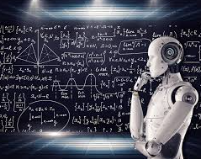Artificial intelligence (AI) has become an important part of our daily lives, often in ways we don’t even notice. I rarely realize how much AI does to help me when I am doing tasks. AI refers to machines and software that can learn, think, and make decisions like humans. It is not just about robots or complex systems; many common tools and apps use AI to make tasks easier and faster for us. It is pretty freaking cool. This article will explore how AI is present in everyday life.
One of the most common places AI can be found is in our smartphones. Voice assistants like Siri, Google Assistant, and Alexa use AI to understand what we say and respond with helpful information. For example, we can ask Siri to set an alarm, search for something on the internet, or send a message without typing. AI also helps with features like facial recognition, where the phone uses a camera and AI to recognize your face and unlock the device. Even the apps we use, like social media, for example, Instagram uses AI to show us content that we might be interested in based on our previous likes and searches.
AI plays a big role in transportation as well. Self-driving cars are one of the most exciting examples of AI technology. They are pretty cool. These cars use sensors and AI to understand their surroundings and drive safely without human input. Although fully self-driving cars are still being tested and developed, AI is already helping drivers with features like automatic braking, lane assistance, and parking assistance in many new vehicles. Which again is pretty cool. Ride-sharing apps like Uber and Lyft also use AI to match passengers with drivers, estimate travel times, and suggest the fastest routes. But using Uber can make you feel uncomfortable sometimes if it smells a little funky. This helps save time for both the driver and the passenger, making transportation more efficient.
Online shopping platforms like Amazon, eBay, and others use AI to recommend products to users. I like to buy Legos from Amazon for a little cheaper. When you search for a product, AI suggests similar items based on your preferences and past purchases. This makes shopping faster and more personalized. Also, AI is used in managing inventory and guessing which products will sell the most, helping businesses stay prepared for customer demand. In physical stores, AI-powered self-checkout systems are becoming more common. These systems allow customers to scan and pay for items without the need for a cashier, speeding up the checkout process, but sometimes can be a bit wonky or troublesome while scanning or maybe even accidentally scanning.
Streaming platforms like Netflix, YouTube, and Spotify use AI to recommend movies, shows, and music based on our tastes, and even recent music choices or podcasts, you could listen to (for example, the Talk Tuah podcast). AI looks at what we’ve watched or listened to before and suggests similar things that we might enjoy. This personalization makes it easier for us to find entertainment that suits our preferences without spending time browsing.
























































































































































































